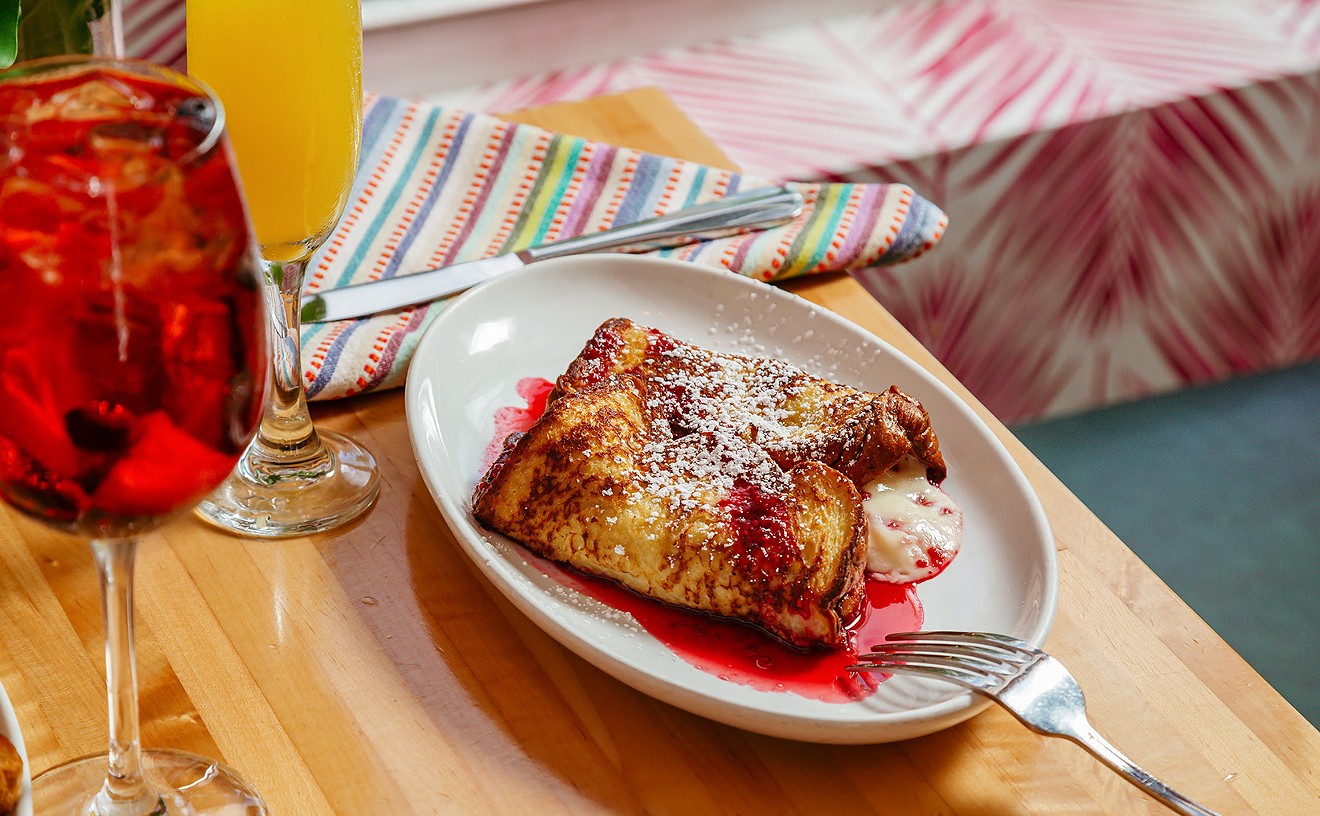No one recognized Rick Famuyiwa when he strolled up to the Ladera Park basketball courts on a bright weekday afternoon. In January, the lanky, 41-year-old director's new comedy, Dope — a crowd-pleasing high school flick about nerds who dress like Kid 'N Play, dream of going to Harvard and bash around in a punk band — was the hit of Sundance.
Dope is poised to be one of the summer's sneak successes. It has breakout potential: It's funny, off-kilter, smart and sincere. And Dope could help change the way many people view Famuyiwa's hometown of Inglewood, which is more than just a base for gangbangers and cop dramas. The park is packed and the guys on the court are busy dribbling and teasing, looking exactly like the actors Famuyiwa directed there almost 20 years ago, when the then–22-year-old USC film student shot Blacktop Lingo, the short that got him into his first Sundance.
"They painted the court," Famuyiwa observes. "It's a little nicer now." As a kid, he and his friends would hang out there all day. "I'm tall and I play basketball," he says, "so I'm not going to get fucked with." But secretly he was a bit of a weirdo, the son of Nigerian immigrants and a kid who preferred to boogie board. The older guys who joked around as they hooped were "doctors [and] drug dealers and everything in between," and he'd eavesdrop and file away their conversations for the movies he'd someday make — before he even knew he wanted to make them.
"They had really smart things to say, and I would often think, if these guys were born in a completely different environment, they wouldn't be drug dealers."
He felt as if he was always flipping through a rule book for how to behave: "That's black, that's not black enough, that's too black," he says.
Famuyiwa graduated high school in 1991, during what he describes a "golden age" for Inglewood. The Inglewood of Boyz n the Hood wasn't inaccurate. But the neighborhood's real story is more complex. It was one of the whitest parts of Los Angeles, until the 1965 Watts Riots caused Caucasians to flee. Even so, Inglewood High School didn't integrate until 1970.
"One of the last places," Famuyiwa notes. "You'd think it was the South." He's kicking around making a film about that freshman class, the third movie in his unofficial Inglewood trilogy.
After Blacktop Lingo played at Sundance in 1994, producers called Famuyiwa for meetings. They were looking for a new Boyz n the Hood, something gritty about poor kids and drug dealers. He didn't want to be John Singleton. He wanted to be John Hughes. And why not? Ferris Bueller claimed rich suburban Chicago kids were typical teenagers. Why couldn't a movie about middle-class Inglewood kids do the same?
In 1999, MTV loved his script called The Wood, a male-bonding comedy about two middle-school best friends, now all grown up, trying to keep their third pal from sabotaging his own wedding. There were Bloods and one robbery, but Famuyiwa strived to make a point of portraying his hometown as a place everyone could relate to, no matter where they're from or what their skin color.
Now he thinks he might have tried too hard. With The Wood, Famuyiwa had made a film that was quietly rebellious: an all-black movie where nobody dealt drugs or died. His next romantic comedy, 2002's Brown Sugar, was his spin on The Philadelphia Story. At the time, it felt "fresh and different." But as knockoffs sprouted, Famuyiwa grew concerned that the industry now felt comfortable only making aspirational, issue-free rom-coms about African-Americans who were so wealthy as to be, well, whitewashed.
"There's this responsibility you feel to present a certain thing — that kind of respectability politics," Famuyiwa says. "I think that became the only accepted way of defining black culture. I started to become too aware of 'How does this look?' instead of 'Who are these characters?' "
Worse, he couldn't help contrasting acceptable — i.e., flawless — fictional black characters with the media's portrayal of actual teens. "Maybe Trayvon is a teenage kid and a loudmouth punk, but he loses his life because he's not perfect," Famuyiwa says. "We're telling kids that unless they're Theodore Huxtable, their life doesn't have value."
Dope's title is a play on the slipperiness of definitions: It can mean cool, stupid or drugs — or, here, all three at once. In the movie, Famuyiwa's alter ego Malcolm (newcomer Shameik Moore) refuses to fit into the Inglewood image. Instead of baggy jeans and bandannas, he wears bright-colored '90s thrift-store shirts buttoned all the way up to the neck, and grooms his hair into a 4-inch high-top.
Dope's clothes and Yo! MTV Raps soundtrack might seem like gimmicks, but Famuyiwa is using them to make a point. Malcolm wants to prove he's different. The truth that the movie gets at, though, is that when you're defining your personality in contrast to an image, you still aren't truly defining yourself. And sometimes, as Malcolm finds out, the only way out is to play into the drug-dealing, law-breaking role strangers ladled on him anyway.
"Everything about who I am, negative and positive, is what shaped me," Famuyiwa says. Even he, the geek who wanted to go to USC, still knew the guys who were just trying to get by, and he'd buy their stolen speakers. "There was a ton of shit that we got into that people would look at now and go, 'What the fuck?' " he says. "I didn't want to smooth down those edges." And it's important to him that audiences understand that the characters in Dope don't have to be role models — they just have to be themselves.










